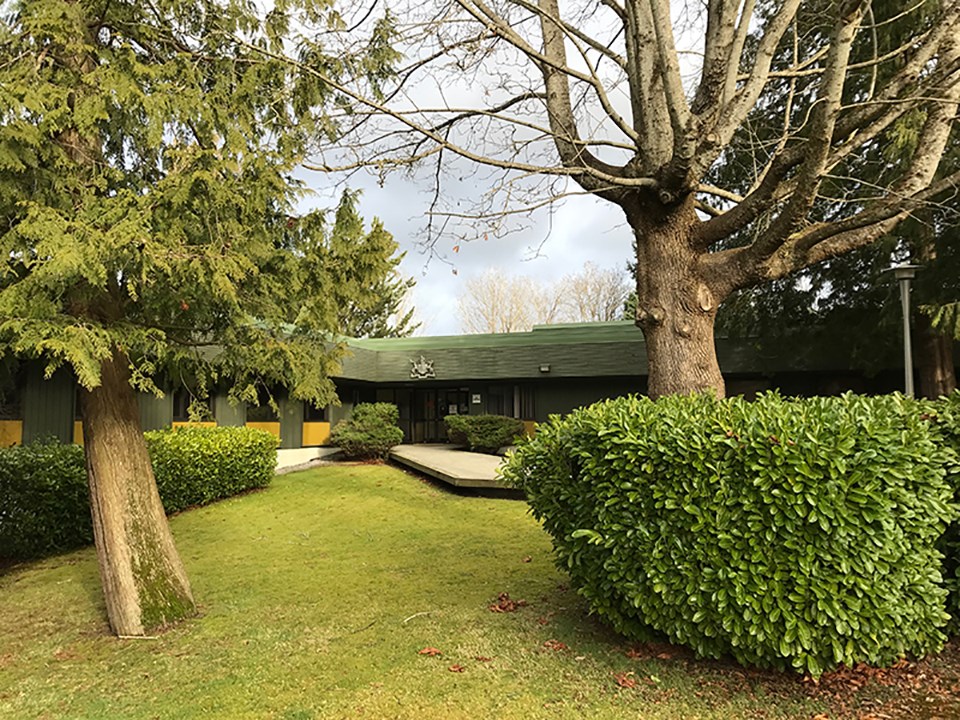The lawyer for the former head of the Powell River Board of Education told a court hearing on March 14 that details of his client’s 2024 departure are secret.
Last June 17, qathet School District announced superintendent Jay Yule would leave at the end of the school year from the top job, which paid him $192,758 in 2023. Yule retained David Tarnow to ask a BC Supreme Court judge to prevent the release of a letter written in support of a man found guilty of sexual interference of a Powell River high school student.
“The terms of his not being there [as superintendent] are bound by a nondisclosure agreement,” Tarnow told justice Jan Brongers.
In 2023, a jury convicted Kasimir Tyabji-Sandana, 37, of sexually interfering with a girl under the age of 16 in 2016. Tyabji-Sandana met her when she volunteered at his mother and stepfather’s farm for work experience credits toward high school graduation. The relationship began after the victim ceased her volunteer work at the farm.
Justice Peter Edelmann agreed with Tarnow, who was Tyabji-Sandana’s lawyer for the trial and sentencing, that his client had suffered due to his Métis heritage and sentenced him on June 4, 2024, to two years less a day of house arrest, to be followed by three years of probation.
In the letter, which was filed with the court on Tyabji-Sandana’s sentencing, Yule identified himself as the superintendent of schools. He wrote that he has known Tyabji-Sandana for more than 22 years as a student, family friend and business associate “of integrity, responsibility and genuine kindness.”
“I am aware of the gravity of the offence and do not intend to downplay its seriousness,” wrote Yule. “However, I firmly believe that this incident is not reflective of Kaz's true character. He has expressed deep remorse for his actions and is committed to making amends. He is determined to learn from this experience and his actions have demonstrated that.”
Yule’s letter to the court is not on qathet School District letterhead and the originating email address is not visible.
This reporter applied to the court for copies of the exhibits provided to Edelmann for the sentencing hearing. Separately, Christine Schreiber of the Powell River Police-Based Victim Services Program applied to the court in a personal capacity for a copy of Yule’s letter about Tyabji-Sandana. She told the March 14 hearing that she wants to give it to the victim, who may take further action against Yule and the school district.
Tarnow told Brongers that Yule feared publication of the reference letter would harm his reputation and discourage others from writing reference letters to judges. Yule’s evidence was that, had he known that his letter could be made public, he would have chosen not to participate.
In his decision, Brongers cited the leading Supreme Court of Canada case that affirms Canadian court records are open by default.
“The Sherman Estate case states unequivocally that the open court principle is a central feature of our democracy that is protected by the constitutionally entrenched right to freedom of expression, and there is a strong presumption against limiting it,” said Brongers. “All aspects of court proceedings are therefore presumptively open to the public and the press, and an applicant who seeks to limit their access to them faces a high bar.”
Brongers said letters of reference are commonly provided during the sentencing stage without any assurance of confidentiality.
“Furthermore, Dr. Yule does not depose that he had any expectation of confidentiality when he voluntarily tendered his letter of reference, one in which he cited his public position as superintendent of the school district as the basis for his ability to persuasively vouch for Mr. Tyabji-Sandana’s character,” said Brongers.
Last June, a week after the announcement about Yule, qathet School District board chair Jaclyn Miller refused to comment on whether Yule’s departure was related, directly or indirectly, to the letter. She said it was a personnel matter and cited restrictions in the Freedom of Information and Protection of Privacy Act.
“However, I can say that Jay was a dedicated employee for over 25 years and the district wishes him all the best going forward,” Miller wrote in an email.
In the same March 14 court hearing, Brongers also refused Tyabji-Sandana’s application to censor copies of pre-sentencing reports and Gladue reports, which analyze the impacts of an offender’s Indigenous heritage.
Tyabji-Sandana told Brongers that releasing unredacted copies of the reports would harm members of his family, undermine reconciliation and discourage Indigenous offenders from participating in Gladue report interviews. He claimed that media coverage about him was motivated by money and generated animosity toward him.
“The evidence tendered before me does not demonstrate that publicly available copies of the pre-sentencing reports must be redacted in order to ensure that Indigenous offenders participate candidly and transparently in sentencing hearings,” said Brongers, adding that it is an unfortunate “fact of modern life” that disrespectful and ignorant comments are posted in response to media articles.
Brongers said there was no evidence before him that denying public access to court records would prevent that from occurring or that any benefit of denying public access would outweigh the harm to the open court principle.
In Tyabji-Sandana’s case, one of the reports describes how “parental instability, racial intolerance and familial, social and cultural alienation” during his childhood led to alcoholism. The only other character reference letter for Tyabji-Sandana came from a Vancouver Coastal Health registered clinical counsellor who remarked on his progress in “understanding how his traumatic past affected his present.”
Join the Peak's email list for the top headlines right in your inbox Monday to Friday.




